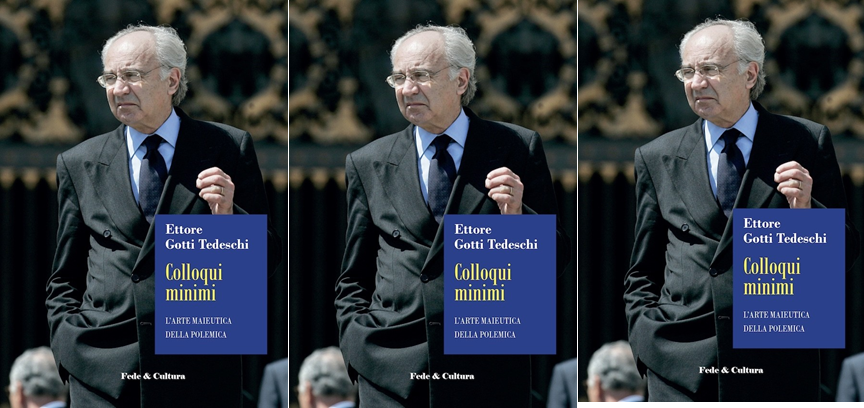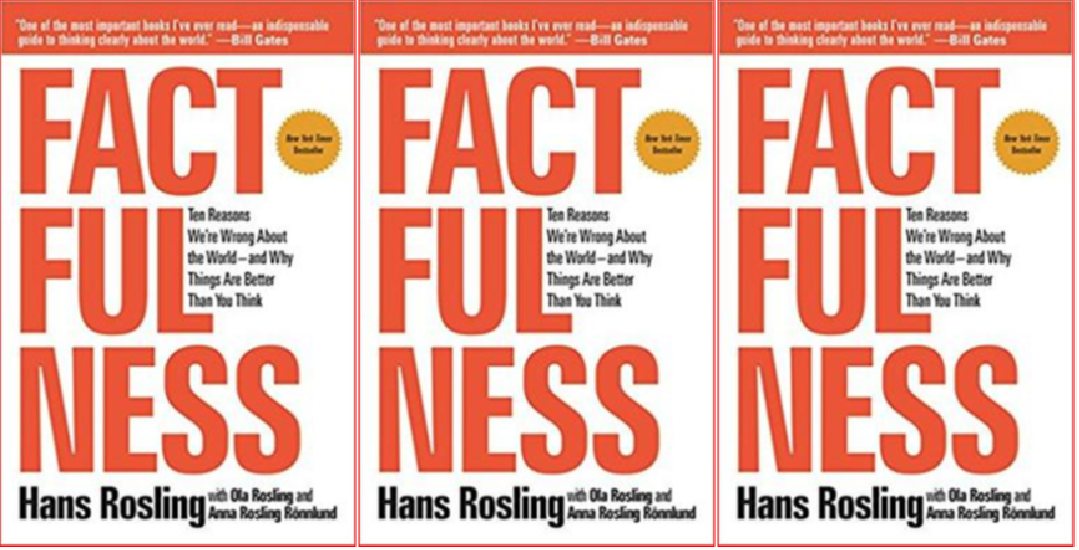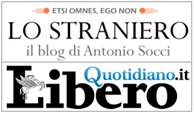| | | OFFLINE | | Post: 32.571
Post: 14.657 | Registrato il: 28/08/2005
Registrato il: 20/01/2009 | Administratore | Utente Gold | |
|
 While he was president of the Vatican's IOR, banker-economist Ettore Gotti Tedeschi regularly contributed essays on economics and finance
While he was president of the Vatican's IOR, banker-economist Ettore Gotti Tedeschi regularly contributed essays on economics and finance
to L'Osservatore Romano, displaying practical and technical insight, vast erudition and an unfailingly Catholic perspective. There was enough
to constitute a book published in 2011 (the year before he was unceremoniously - and unjustly, by most accounts - dismissed from the IOR)
entitled Reasons of Economy. (He was, of course, Benedict XVI's major technical consultant for the social encyclical, Caritas in veritate
(2010). Before that, he had written two books about Denaro e Paradiso (Money and Paradise), about the global economy and the Catholic
world, in 2004 and again in 2010. Since 2012, he has published five more books, all reflecting his Catholic and professional perspective on
global issues. In the following blogpost, Aldo Maria Valli tells us about a new book from EGT...
A polemical 'counter-history'
from Ettore Gotti Tedeschi
Translated from

February 14, 2019
Ettore Gotti Tedeschi’s new book is entitled Colloqui minimi (Small conversations) (published by Fede e Cultura). It is a series of brief chats between the author and various personages from the Bible and from history such as, to cite just a few, St. Michael the Archangel, Abraham, Isaac, Jacob, Moses, King David, the prophet Isaiah, Pythagoras, Confucius, Socrates, Plato, Pontius Pilate, St. Ambrose, St. Augustine, St. Francis of Assisi, Pope Boniface VIII, Thomas More, Martin Luther, John Calvin, Shakespeare, Galileo, Rousseau, Kant…
I’ll stop because the list is truly long and goes through the entire history of ideas and of religions. I will only add, to name people closer to us in time, that EGT also ‘chats’ with Hitler, Mao, Khrushchev, Paul VI, Marcel Lefebvre and the Dalai Lama. [One would think, with the author’s erudition and his familiarity with the thought of the persons he ‘chats with’, that he framed their answers in a way consistent with what is known of what they thought, which is the only way he could have done it plausibly.]
Presented this way, the reader may well think this is a daunting head-spinning book to read. But the author is quite capable and pithy. The chats are quick and never boring, and touch all the themes dear to the author’s heart. Indeed, he does not mask his own views but on the contrary, does his best to bring them to light (there’s a reason the book’s subtitle is ‘The maieutic art of polemics’ [‘maieutic’ meaning the Socratic way of inquiry that aims to bring a person’s ideas into clear consciousness], and therefore, he revisits the entire history of western civilization which he describes as “falling endlessly into a pneumatic void through relativism, the collapse of authority, the triumph of the ugly, insignificance and heresy in and of the Church, the triumph of gnosis, an amoral economy that aims to make money on money (this coming from a banker!), the attempt to give ideological solutions to the problems of poverty and of the economic crisis which both derive from a moral collapse consequent to the rejection of Christianity”.
But why write such a book? The author explains that he had originally meant his text “for the exclusive use of my children and grandchildren, in order to help them have a rapid synthesized view – mine naturally – of what truth is, and how the concept has been modified in the course of history thanks to the thoughts and actions of specific persons. So they can better understand what is happening today”. But with pressure from his publisher, it has turned into a manual for a far wider public. For which we are thankful.
Out of the dozens of chats in the book, I have chosen that with St. Ignatius of Loyola.
Q: I am sure you know that it was thanks to your Spiritual Exercises that I was converted at age 25. The Exercises made me confront the supernatural, and made me decide it was time to seek to make sense out of my life. Another Spanish saint, this one from the 20th century, San Josemaria Escriva later taught me to see the supernatural in daily life. I would like to ask you now: If you lived today and became pope, what would you do to strengthen the Catholic faith?
R. I do not like your tendentious question, and so I will reply only indirectly, for the good of the church of Christ, by enunciating eternal principles that had always inspired me. To serve the Church as her leader, one must first of all study, seeking to become, as I did, a doctor in philosophy (and master of arts) and then to consecrate oneself to an apostolate.
- The Society of Jesus which I founded had two hinges: in the spiritual life, union with the Crucified Christ; and in apostolic life, service to Jesus.
- My spirituality was ‘trinitarian’, ‘Christ-centered’ and eucharistic.
- My ‘strategic program’ was simple: evangelize the nations that did not know Christ (Brazil and India, for example), and defend the true Catholic faith in Europe, where it had been attacked by the Lutheran and Calvinist reformations. And to do this by teaching the truth to everyone even to children and ignorant adults – without false human or cultural respect.
Thank you. You have been very clear. My next question. Why was the Society of Jesus formally suppressed in 1773?
A: I believe it was because the Jesuits represented the enemy to be beaten back in order to make room for the anti-Catholic, Masonic and Jansenist spirit of the Enlightenment. What’s really amazing is that Pope Clement XIV went along with this, under the pressure of the Bourbons and other royal families who are supposedly Catholic.
As you know, after the order was suppressed, many Jesuits found refuge – and were welcomed - in Protestant and orthodox countries,the enemies we had been fighting till then. And so the ruling classes in Europe, without the spiritual and cultural assistance of the Jesuits, underwent that process of corruption that the French Revolution facilitated - the affirmation of secularism in large parts of Europe, and the persecution of Catholics everywhere.
As you know, in 1814, after the fall of Napoleon, Pope Pius VII who had been held prisoner in France by the Emperor, reconstituted the society shortly after he was liberated, and the Jesuits could continue their fundamental work of defending the theological, philosophical, historical and cultural truth against Masonic liberalism and its secular nationalist ideals.
But what torments me now is that, I am told, much later a new generation of Jesuit theologians calling themselves progressivists (like Teilhard de Chardin and Karl Rahner) have introduced principles of theological modernism – precisely those anathematized by St. Pius X – and have progressively disseminated within the Church a doctrine that has been increasingly modernist, in some cases even close to so-called liberation theology).
I am concerned because if such deviation is a fact, it contradicts my expressed desire that Jesuits be obedient to the universal and immutable Magisterium of the Church. I had to reckon with Martin Luther – and I combatted his separation of faith and reason and of faith and works that would result in secularism and sectarianism.
Who are my disciples combatting in the 21st century? They certainly cannot be called orthodox Ignatians if they allow themselves to be influenced by Jesuit theologians like De Lubac (who was one of the major influences in Vatican-II, the father of nouvelle theologie) or De Chardin who called Jesus an ‘evolutor’ (the Word Incarnate who unites in himself the God of tradition and the god of evolution) who promotes the humanization of the earth itself towards the end of producing a more socialized supermankind; or Karl Rahner (the true theologian of church ‘renewal’ who has been called by some the ‘heresiarch’ of the 20th century)… I have been shown a photograph of a Jesuit superior-general in your time where he is shown praying with Buddhists – was that real or photofaked?
End of sample. What do you say?
- That the answers seem to be very tendentious? Just as well – otherwise, how boring it would be!
- That Gotti Tedeschi is most ‘politically incorrect’? Of course. That is why his book ought to be read.
Antonio Socci - who has been focusing lately more on defending and upholding Italian identity and sovereignty rather than in Church affairs - calls attention to a book that should perhaps be better known and read than it now is...
 Here’s what positive things have taken place
Here’s what positive things have taken place
in the world in the past twenty years and
what has gone wrong in Europe at the same time
Translated from

February 10, 2019
It’s getting worse for mankind, one always hears from the ‘one-thought’ Left. That the poor are getting poorer, the rich richer, on top of which we have violence, pollution, climate catastrophe, exhaustion of natural resources, hunger and disease, under-development, and inevitable mass migration.
“This is the picture that all Westerners see depicted in the media and that consequently, they have imprinted in their minds. I call it a hyper-tragic view of the world, one that is deceptive and stressful,” Hans Rosling wrote in the book Factfulness (Italian edition published by Rizzoli).
[Rosling (1948-2017) was a Swedish physician, academician, statistician and public speaker who co-founded the Gapminder Foundation which developed the Trendalyzer software system that converts statistics from the UN and the World Bank into interactive graphics that help explain development issues.] He was a member of the Swedish Academy of Sciences and founder of the Swedish division of Doctors without Frontiers. Published posthumously in 2018, Factfulness says the vast majority of human beings are wrong about the state of the world. He shows that his test subjects think the world is poorer, less healthy, and more dangerous than it is. Bill Gates recommended the book with these words in 2018:
I’ve been recommending this book since the day it came out. Hans, the brilliant global-health lecturer who died last year, gives you a breakthrough way of understanding basic truths about the world—how life is getting better, and where the world still needs to improve. It’s a fitting final word from a brilliant man, and one of the best books I’ve ever read.
His book lists an impressive list of data which demonstrate the exact opposite. Namely, that the world is getting better in many ways, mankind has made some spectacular progress in many areas, including a state of wellbeing that is achievable for everyone but unimaginable before.
So, have the media been giving us a completely upside down representation of reality? The answer is YES. But there is another upside down representation of reality – on the subject of Europe and Italy – in which it is more difficult to find out genuine data which will make us see the truth.
When they write or speak about the European Union, the media go into ecstasy. Since it was launched 25 years ago, they predicted that this political experiment (which included a single monetary system) would lead all Europeans into the Promised Land of milk and honey, would make us all rich and protect us from all financial and political storms.
The exact opposite has happened, and things are getting worse, but the media continue to perpetrate the fable from the initial propaganda for the EU.
Is there a connection between the two phenomena – the positive global picture and the negative European-Italian one? Of course, there is. But first, let us look at the numbers taken from the major international institutions. Here are some examples:
In 1800, 85% of the world’s population lived in extreme poverty. Twenty years ago, that percentage was down to 29%, and today it stands at 9%. A remarkable success (with an exceptional leap in the past 20 years alone), but no one has taken note.
Rosling wrote: “In 1800, when Swedes were dying of hunger and British children worked in the coal mines, life expectancy around the world was 30. Almost half of babies born died in infancy. Those who survived lived to between 50 and 70. That is why the average life expectancy was 30.” Today, life expectancy around the world is 72 (in Italy, it is above 80).
Let us consider next “all the victims of floods, earthquakes, storms, droughts, fires and temperature extremes, as well as those who died during the evacuations and pandemics consequent to such episodes”. Rosling says that today, such deaths are only 25% of what they were a century ago, but inasmuch as the world population has grown by 5 billion since them, the adjusted death rate is even more remarkable: just 6% of what it was a century ago. Thanks to enormous progress which allows us to defend ourselves better from such vicissitudes.
One fact that exemplifies the improvement of quality of life everywhere: today, 80% of the world’s population has access to electricity.
One other insistent theme n the media: that Africa is a time bomb which with its demographic boom, with widespread hunger, disease and underdevelopment, will bring millions of migrants to Europe.
Which ignores the fact that the European countries have found it difficult to achieve a 1% growth in GDP (gross domestic product) annually, whereas GDP in African countries is increasing much better than that, and countries like Ghana, Nigeria, Kenya and Ethiopia (even Bangladesh in Asia) have annual GDP growth above 5%. And that there are African countries today – Tunisia, Algeria, Morocco, Libya and Egypt (i.e., North Africa) where life expectancy is better than the average world life expectancy of 72.
Rosling also lists many horrendous things that have disappeared or are disappearing from the world, from legal slavery to the incidence of smallpox, and even deaths from airplane accidents.
Great reduction has also been seen in the percentage of undernourished persons (from 28% in 1970 to 11% in 2015), the number of nuclear arms (from 64,000 in 1986 to 9,000 in 2017), the presence of ozone-destructive agents (from 1,663,000 tons in 1970 down to 22,000 tons in 2016), child labor, and lead pollution from gasoline, as well as incidents of massive oil spillage.
Meanwhile, cereal yield is growing around the world (from 1400 kilos per hectare in 1961 to 4,000 kilos in 2014), as is the acreage of protected parklands, literacy (from 10% in 1800 to 86% in 2016), not to mention the growth in scientific research, in the practice of democracy and women suffrage.
One can go on litsing other indicators of progress reported by Rosling – predominantly economic indexes of wellbeing which nonetheless do not exclude other human problems and very negative facts about human existence today.
But what about Europe and Italy? Why have things gone backward unlike in the rest of the world?
Just two pieces of data suffice to tell the story:
- In 1999, the Eurozone represented 22% of the world’s GDP. In 2016, it was down to 16%.
- In 2000, the US economy (in terms of GDP) was better than the Eurozone by 13%, but in 2016, the US advantage had doubled to 26%.
So even if the media continue with their fable of a happy EU, the people of Europe are now aware of the deception and are paying with their own skins the worsening quality of life on the continent – now they are starting to protest at the ballot boxes (Italy and the UK) or in the public square (France).
And what is the link between the two opposing phenomena (worldwide and in Europe)? It is called globalization. Until the fall of the Berlin Wall, global progress had been orderly and regulated, under the leadership of the United States and Western Europe. But since the 1990s, a ‘wild’ globalization has been imposed via an unregulated international market and the entry into the world economic scene of a giant like China which has provided unfair competition to everyone else.
The folly of the European Union was to tie its own hands with the Treaty of Maastricht (focused on the market and inflation, rather than on work and economic growth) and with a single monetary system which, beyond preventing national monetary policies, has gifted Germany with a highly undervalued mark and Italy with a hypervalued lira. In this way, Germany has sucked the blood out of other European economies, especially that of Italy.
In 18 years of the euro, Italian manufacture has been reduced by 16% while Germany’s has grown by 30%. In 1999, when the euro was instituted, the Italian per capita income was 96% of the German, while in 2015, after 16 years of the euro, Italy’s per capita income had fallen to only 76% of the German. In the 1980s, Italians saved about one-fourth of their income – today it’s virtually zero.
Italy which, between 1960-1979, had an annual GDP growth of 4.8% (and was still at 2% annual growth between 1980-1999), stalled between 2000-2018, so that now the annual growth is 0.2%.
This translates into more unemployment and poverty, less investment in infrastructure, education and health. It means a blockage of upward social mobility. It means having young people without a future, without even the possibility of planning for a future, as well as serious denatalization. This is irreversible decline.
[Modificato da TERESA BENEDETTA 18/02/2019 21:56] |